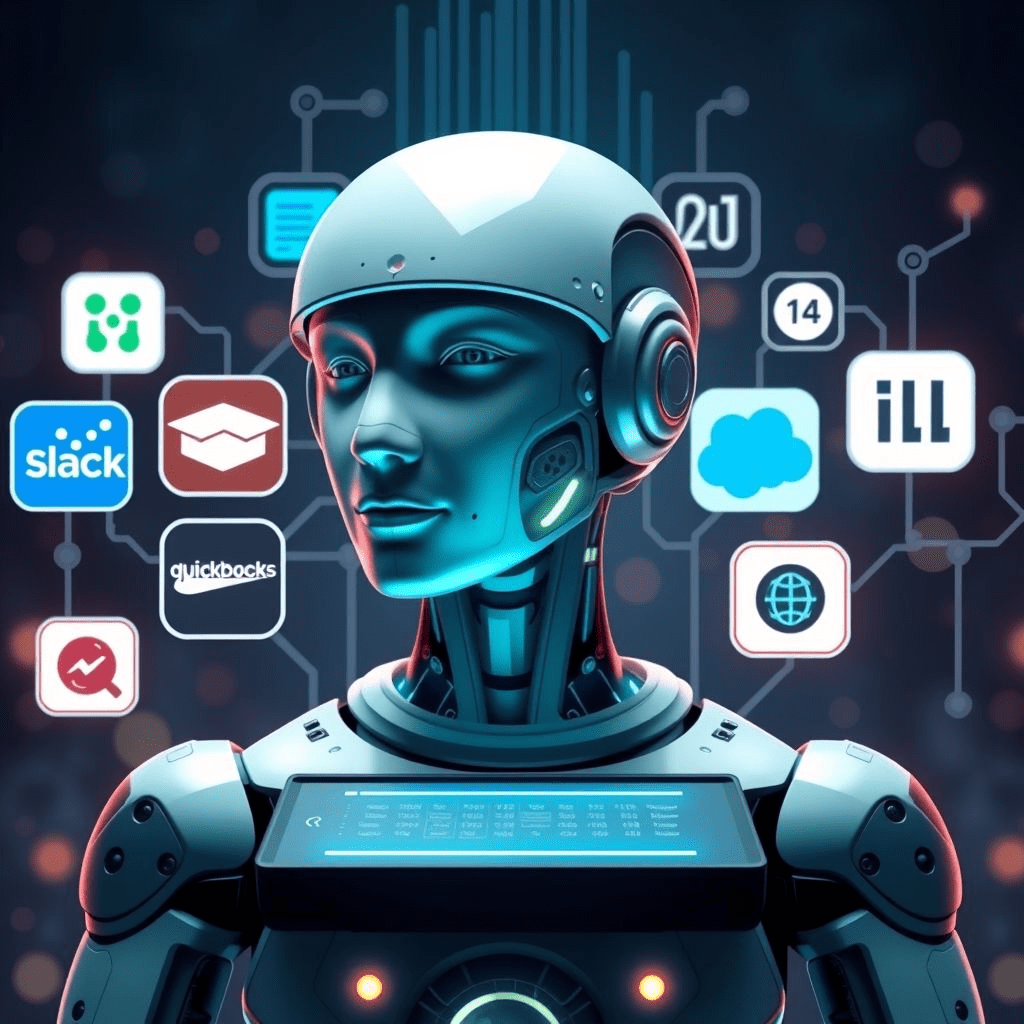Composio Secures $25M Series A to Advance AI Agent Development
Building the Next Generation of Autonomous Software Agents
In a significant stride toward the future of enterprise automation, Composio, a San Francisco-based startup, has secured $25 million in Series A funding. The company is focused on developing AI agents that automate software workflows—a rising technology frontier aiming to transform how humans interact with digital systems.
Led by Accel, the funding round also saw participation from Prosus Ventures, Lightspeed, and returning angel investors including leaders from OpenAI, Notion, and Airtable. The funds will be used to expand Composio’s engineering team, scale customer deployment, and further evolve its AI agent orchestration platform, which enables software to interact with APIs autonomously, just like a human would.
The deal puts Composio at the center of a rapidly emerging space in AI: autonomous agents that don’t just generate content—but can reason, take action, and complete multi-step tasks by operating across multiple software tools.
What Is Composio?
Founded in 2022 by former Stripe engineer Shaun Sundararaman and AI researcher Anita Zhang, Composio builds AI infrastructure designed to power the next generation of digital workers—called AI agents.
Think of an AI agent as an intelligent assistant that doesn’t stop at suggesting or drafting something—it actually completes tasks on your behalf. From filing expense reports in QuickBooks to onboarding employees in HR software to managing multi-step marketing workflows in HubSpot, Composio’s agents are being designed to work across APIs and UIs without direct human intervention.
According to CEO Shaun Sundararaman:
“We’re building the connective tissue between AI reasoning engines and the fragmented software stack that businesses use every day. Our goal is to make agents that understand intent and execute with reliability.”
Unlike conventional RPA (Robotic Process Automation) tools, Composio’s approach is data-driven, language-model-native, and modular—allowing developers to define agent capabilities, goals, and constraints without hardcoding every step.
How Composio’s AI Agent Platform Works
Composio’s platform offers three core components:
1. Action Graph Engine
An abstraction layer that maps out possible actions an agent can take across a software ecosystem. This includes CRUD operations, API calls, and form submissions.
2. Autonomous Execution Layer
Powered by LLMs like GPT-4, Claude, and open-source alternatives, this engine interprets tasks, reasons through next steps, and executes them based on context.
3. Workflow Orchestration UI
A developer dashboard that lets teams define agent permissions, observe activity, test integrations, and enforce compliance policies.
This approach enables AI agents to function across multiple SaaS tools simultaneously, like Slack, Salesforce, Trello, and Airtable—something legacy automation systems struggle with.
Why Investors Are Betting Big on AI Agents
The interest in AI agents isn’t isolated. Since the rise of tools like AutoGPT, OpenAgents, and Cognition’s Devin, there’s been massive speculation about the future of AI beyond chat and content generation.
But while many consumer-facing agents remain conceptual or limited in scope, Composio is targeting serious enterprise use cases where agents can save human time, reduce error, and unlock new efficiencies.
Abhinav Chaturvedi, partner at Accel, noted:
“Autonomous agents are the next logical evolution in software. But the real challenge isn’t just intelligence—it’s trust and integration. Composio has cracked a scalable architecture to make agents reliable and controllable.”
That sense of control—especially with role-based access, sandboxed environments, and audit trails—makes Composio particularly appealing to mid-sized and large enterprises.
How Enterprises Are Using Composio’s AI Agents Today
Though still early in its journey, Composio has already partnered with 30+ early customers in fintech, healthtech, SaaS, and e-commerce. Real-world use cases include:
- Customer Success Automation: Agents respond to tickets, check databases, and resolve low-complexity issues without human help.
- HR Onboarding: End-to-end employee onboarding—setting up emails, payroll accounts, Slack invites, and benefits in one go.
- Finance Operations: Automating expense reconciliation across multiple departments with email parsing and QuickBooks integration.
- Compliance Workflows: Monitoring cloud settings and flagging misconfigurations based on predefined policies.
One early customer, a Series C fintech startup, reported a 40% reduction in operational overhead after integrating Composio agents for internal IT automation.
Security, Ethics, and Compliance: Building Trustworthy AI Agents
As AI agents take on more responsibilities, questions of security and trust are paramount. Composio is addressing this head-on by baking “guardrails” into its platform architecture.
Key security features include:
- Granular permission control
- Real-time logging and auditing
- Safe-mode testing environments
- Zero-data retention policy
- SSO and IAM integrations
The platform is also SOC 2 Type I compliant, with Type II underway, and offers clients optional VPC deployment for full data control.
“We believe trust will be the differentiator,” said CTO Anita Zhang. “We’re not just building smart agents—we’re building controllable, observable, and ethical ones.”
Competitive Landscape and Differentiation
The autonomous agent space is starting to get crowded with players like:
- Cognition Labs (builders of Devin, the AI software engineer)
- MultiOn (personal AI agents for consumers)
- Adept AI (action-based large models)
- LangChain (open-source agent framework)
But Composio stands out for its platform-first approach and its focus on backend infrastructure, not just LLM wrappers. Instead of building its own LLMs, Composio acts as a meta-layer for orchestrating external models safely inside enterprise systems.
That makes it flexible, LLM-agnostic, and scalable across multiple verticals.
The Road Ahead: Expanding the Agent Ecosystem
With fresh funding, Composio plans to:
- Double its team to 80+ employees by mid-2026
- Launch a self-serve version of the platform for developers
- Expand support to over 200 SaaS integrations
- Introduce multi-agent collaboration features
- Establish an open Agent Store where developers can publish reusable workflows
The startup also hinted at a research partnership with Stanford’s AI Lab, aiming to co-develop new reasoning models optimized for multi-step API execution.
Their long-term goal? An operating system for agents—where AI not only answers queries but manages your digital life across apps and systems.
AI Agents Are No Longer the Future—They’re the Next Interface
Composio’s momentum comes at a time when human-computer interaction is shifting from buttons and menus to natural language and autonomous execution. As tasks grow in complexity and software stacks grow in size, AI agents like those Composio is building could represent the most significant UX shift since the touchscreen.
By empowering agents to reason, act, and self-correct across enterprise software ecosystems, Composio is moving from automation to autonomy—a leap that could reshape productivity in every industry







